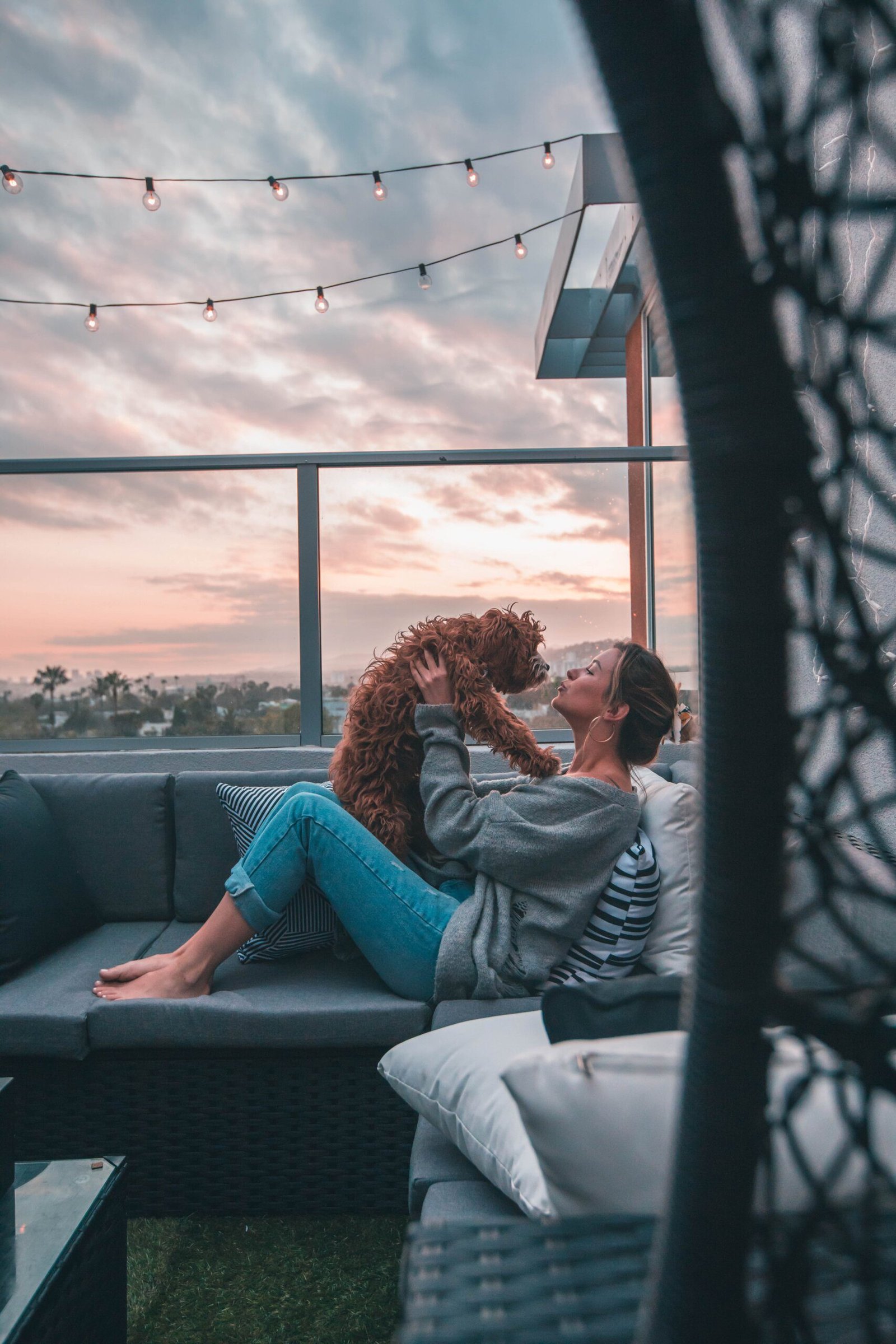Table of Contents
Looking to bring home a furry companion in Singapore? Look no further! This article will provide you with essential tips for buying a pet dog in the Lion City. From understanding your lifestyle and needs to researching breeds and finding a reputable breeder or adoption organization, we’ve got you covered. Whether you’re a first-time dog owner or a seasoned pet parent, these tips will help you make an informed decision and ensure a happy and healthy addition to your family. So, let’s get started on finding your perfect canine companion in Singapore!

Choosing the Right Breed
Consider Your Lifestyle
When choosing a pet dog, it is important to consider your lifestyle and how well a particular breed will fit into it. Are you an avid outdoors enthusiast, or do you prefer a more relaxed indoor lifestyle? Are you a busy professional with limited time to devote to exercise and training? These are all factors to consider when selecting the right breed for you. Some breeds require more daily exercise and mental stimulation, while others are content with shorter walks and playtime sessions.
Research Different Breeds
Take the time to research different dog breeds and their specific characteristics. Each breed has its own unique temperament, energy level, and care requirements. Consider factors such as size, shedding, and allergies when making your decision. Look for breeds that align with your preferences and lifestyle. There are small, low-shedding breeds that are suitable for apartment living, as well as larger, active breeds that thrive in more spacious environments.
Consult with Veterinarians or Breeders
Before making a final decision, it is a good idea to consult with veterinarians or reputable breeders. These professionals have extensive knowledge about different breeds and can provide valuable insights and guidance. Veterinarians can help determine which breed may be best suited for your family’s specific needs and provide guidance on potential health issues that may be common in certain breeds. Breeders can also provide valuable advice on breed selection and may even have puppies available for adoption.
Finding a Reliable Source
Licensed Pet Shops
Licensed pet shops are a good option for finding a reliable source when looking to purchase a pet dog. These establishments are regulated and must meet certain standards of care and welfare. When visiting a licensed pet shop, you can expect to find well-cared-for animals, proper documentation, and knowledgeable staff who can provide you with information about the breed, its care requirements, and any potential health issues.
Reputable Breeders
Reputable breeders are another option to consider when looking for a reliable source for your new pet dog. A reputable breeder will prioritize the health and well-being of their dogs and will be knowledgeable about the breed’s characteristics. They will conduct thorough health checks and genetic testing to ensure that their puppies are healthy and free from hereditary conditions. Reputable breeders will also provide you with vaccination records, health guarantees, and guidance on caring for your new furry friend.
Adoption from Animal Shelters
Adopting a dog from an animal shelter is a wonderful way to give a deserving dog a second chance at a loving home. Animal shelters often have a variety of breeds and mixed breeds available for adoption. By adopting from a shelter, you are not only providing a home for a dog in need but also freeing up space for other dogs in the shelter. Adoption fees are typically lower than purchasing from a breeder, and many shelters provide basic vaccinations, spaying or neutering, and microchipping as part of the adoption process.
Online Platforms
With the advent of technology, there are now numerous online platforms where you can find pet dogs for sale. However, caution must be exercised when using these platforms to ensure that you are dealing with a reputable seller. Verify the credibility of the seller by checking their reviews and ratings. Ask for additional information, such as the dog’s health history and any certifications or documentation. If possible, arrange to meet the seller in person and see the dog before making any commitments.

Budgeting for the Purchase
Cost of the Dog
The cost of the dog itself will vary depending on various factors such as breed, age, and pedigree. Purebred dogs from reputable breeders are likely to be more expensive compared to mixed breeds or dogs available for adoption. Take into account the initial purchase price when budgeting for your new pet dog.
Additional Expenses
Alongside the initial purchase cost, it is important to consider the additional expenses that come with owning a pet dog. This includes items such as food, treats, grooming supplies, toys, bedding, and training equipment. These costs can add up over time, so it is important to factor them into your budget.
Vet Bills and Vaccinations
Regular veterinary care is essential for the health and well-being of your pet dog. Factor in the cost of vaccinations, routine check-ups, and preventive treatments against fleas, ticks, and heartworm. It is also important to be prepared for unexpected veterinary bills in case your dog falls ill or has an accident.
Pet Insurance
Consider investing in pet insurance to help mitigate potential veterinary costs. Pet insurance can provide financial coverage for accidents, illnesses, and routine preventive care. It is always better to be prepared and have peace of mind knowing that your furry friend’s healthcare needs are covered.
Health Checks and Certifications
Physical Examination
Before bringing your new pet dog home, schedule a physical examination with a veterinarian. This will help identify any underlying health issues or conditions that may require immediate attention. A thorough physical examination will give you peace of mind and help ensure that you are bringing home a healthy dog.
Genetic Testing and Certifications
If you are purchasing a purebred dog, it is important to inquire about any genetic testing and certifications that the breeder may have conducted. Genetic testing can help identify potential hereditary diseases or conditions that may be present in certain breeds. Certifications such as those from reputable kennel clubs can provide validation of the dog’s pedigree and breed standards.
Vaccination Records
Ensure that you receive comprehensive vaccination records for your new pet dog. Vaccinations are crucial in preventing common diseases and ensuring your dog’s overall health. Keep track of when vaccinations are due and schedule regular booster shots as recommended by your veterinarian.
Health Guarantees
Reputable breeders often provide health guarantees for their puppies. These guarantees may include provisions for genetic defects or conditions that may become apparent within a certain timeframe. Read the terms and conditions of the health guarantee carefully and ask any questions you may have before finalizing the purchase.

Meeting and Interacting with the Dog
Visiting the Breeder or Pet Shop
When purchasing a pet dog, it is important to visit the breeder’s facility or pet shop to see firsthand how the animals are cared for. Observe the cleanliness of the environment, the temperament of the dogs, and the overall conditions. A reputable breeder or pet shop will be open to allowing potential buyers to visit and interact with the dogs.
Observe the Dog’s Behavior
Take the time to observe the dog’s behavior and temperament. Is the dog friendly and sociable, or does it seem nervous or aggressive? Pay attention to how the dog interacts with you and other people or animals. A dog with a good temperament is more likely to be a good fit for your family and lifestyle.
Ask Questions
Don’t be afraid to ask questions about the dog’s history, temperament, and any specific care needs. A responsible breeder or pet shop will be happy to answer your questions and provide you with the information you need to make an informed decision. Asking questions will also help you gauge the breeder or pet shop’s knowledge and professionalism.
Consider Compatibility
Consider how well the dog will fit into your family’s lifestyle and dynamics. Does the dog get along well with children or other pets? Does it have any specific exercise or training requirements that may be challenging for you? Taking compatibility into account will ensure a smooth transition for both you and your new pet dog.
Considerations for Apartment Living
Breed Size and Exercise Requirements
If you live in an apartment or have limited space, consider the size and exercise requirements of the breed you are interested in. Some small breeds are well-suited for apartment living, while larger breeds may require more space and exercise. Breeds with lower exercise requirements and a calm temperament may be better suited for apartment living.
Noise Level
Dogs vary in their vocalization tendencies, and it is important to consider the noise level of the breed you are interested in. Some breeds are known to be more vocal and may not be suitable for apartment living due to noise restrictions. Look for breeds that have a tendency to be quieter and less prone to excessive barking.
Toilet Training
Toilet training is an important consideration when living in an apartment. Some breeds are known to be easier to house train compared to others. Look for breeds that are known for their intelligence and trainability, as they may pick up toilet training more quickly.
Pet-Friendly Facilities
Consider whether your apartment building or complex is pet-friendly and allows dogs. Some buildings have specific rules and restrictions on dog breeds, sizes, or the number of pets allowed. Ensure that you are aware of the rules and regulations before bringing a pet dog into your apartment.
Grooming and Maintenance
Coat Type and Grooming Needs
Different breeds have different coat types, ranging from short and low-maintenance to long and requiring regular grooming. Consider the grooming needs of the breed you are interested in and whether you are willing to commit to regular brushing, bathing, and professional grooming if necessary.
Frequency of Bathing
The frequency of bathing will depend on the breed and the dog’s activity level. Some breeds may require regular bathing to keep their coats clean and healthy, while others may only need occasional baths. Take into consideration the time and effort required to keep your dog clean and fresh.
Nail Trimming and Ear Cleaning
Regular nail trimming and ear cleaning are important parts of your dog’s grooming routine. Some dogs may require more frequent nail trims if their nails grow quickly, while others may need less frequent attention. Cleaning your dog’s ears regularly can help prevent infections. Be prepared to learn how to properly trim nails and clean ears or seek professional help when needed.
Regular Veterinary Check-ups
Regular veterinary check-ups are crucial for your dog’s overall health and well-being. Schedule routine appointments with your veterinarian to ensure that your dog is in good health and to address any concerns or issues that may arise. Regular check-ups also provide an opportunity for vaccinations and preventive treatments against parasites.
Training and Socialization
Basic Obedience Training
Basic obedience training is essential for every dog, regardless of breed or size. Teaching your dog basic commands such as sit, stay, and come will help create a strong bond between you and your pet, as well as ensure their safety. Consider enrolling in puppy classes or working with a professional dog trainer to get started on the right foot.
House Training
House training is one of the first and most important tasks when bringing a new pet dog into your home. Consistency and positive reinforcement are key to successful house training. Be patient and establish a routine for toileting, ensuring that your dog understands where and when to go.
Leash Training
Leash training is crucial for both your dog’s safety and your own. Teach your dog to walk politely on a leash using positive reinforcement techniques. Start with short walks in low-distraction environments and gradually increase the duration and complexity of your walks as your dog becomes more comfortable.
Socializing with Other Dogs and People
Proper socialization is important for dogs to develop into well-adjusted and confident adults. Introduce your dog to a variety of people, animals, and environments from a young age. Enroll in puppy socialization classes or set up playdates with other friendly and well-behaved dogs to help your dog develop positive social skills.
Pet Supplies and Equipment
Food and Water Bowls
Invest in sturdy and easily cleanable food and water bowls for your pet dog. Consider the size and materials of the bowls based on the breed and size of your dog. Stainless steel bowls are often recommended as they are durable and easy to sanitize.
Leashes and Collars
A well-fitting leash and collar are essential for walking and controlling your dog. Choose a collar that is comfortable and secure, and consider a harness if your dog tends to pull on the leash. Opt for a leash that is appropriate for your dog’s size and strength, and ensure that it is sturdy and reliable.
Beds and Crate
Provide a comfortable and cozy bed for your dog to rest on. Dogs appreciate having a dedicated space to call their own, whether it’s a soft bed or a crate. Crates can also be used for training and can provide a safe and secure place for your dog when you are not able to supervise them.
Toys and Enrichment
Dogs need mental stimulation and entertainment, especially when left alone or during downtime. Invest in a variety of toys that cater to your dog’s interests and chewing habits. Puzzle toys, treat-dispensing toys, and interactive toys can help keep your dog mentally engaged and prevent boredom.
Commitment and Future Planning
Long-Term Care
Owning a dog is a long-term commitment and requires careful consideration of your ability to provide for their needs throughout their life. Dogs can live for many years, so be prepared for the long-term responsibility of feeding, exercising, and providing love and care for your pet.
Exercise and Time Commitment
Dogs require regular exercise to maintain their physical and mental health. Consider whether you have the time and commitment to provide daily exercise and playtime sessions for your dog. Some breeds require more exercise than others, so choose a breed that matches your activity level and availability.
Healthcare and Vaccinations
Regular healthcare and vaccinations are essential for keeping your dog healthy and preventing illnesses. Schedule routine check-ups and vaccinations as recommended by your veterinarian. Be prepared to administer preventive treatments for parasites such as fleas, ticks, and heartworm.
Planning for Holidays or Travel
Consider how your dog will be cared for during holidays or when you need to travel. Arrange for a reliable pet sitter, a trusted boarding facility, or explore dog-friendly vacation options. Discuss your plans with trusted friends or family members who may be willing to care for your dog in your absence.
By following these guidelines and considering all the important factors, you can make an informed decision when purchasing a pet dog. Remember, owning a dog is a long-term commitment that requires time, patience, and love. With the right breed and proper care, your new furry friend will bring joy and companionship to your life for years to come.



